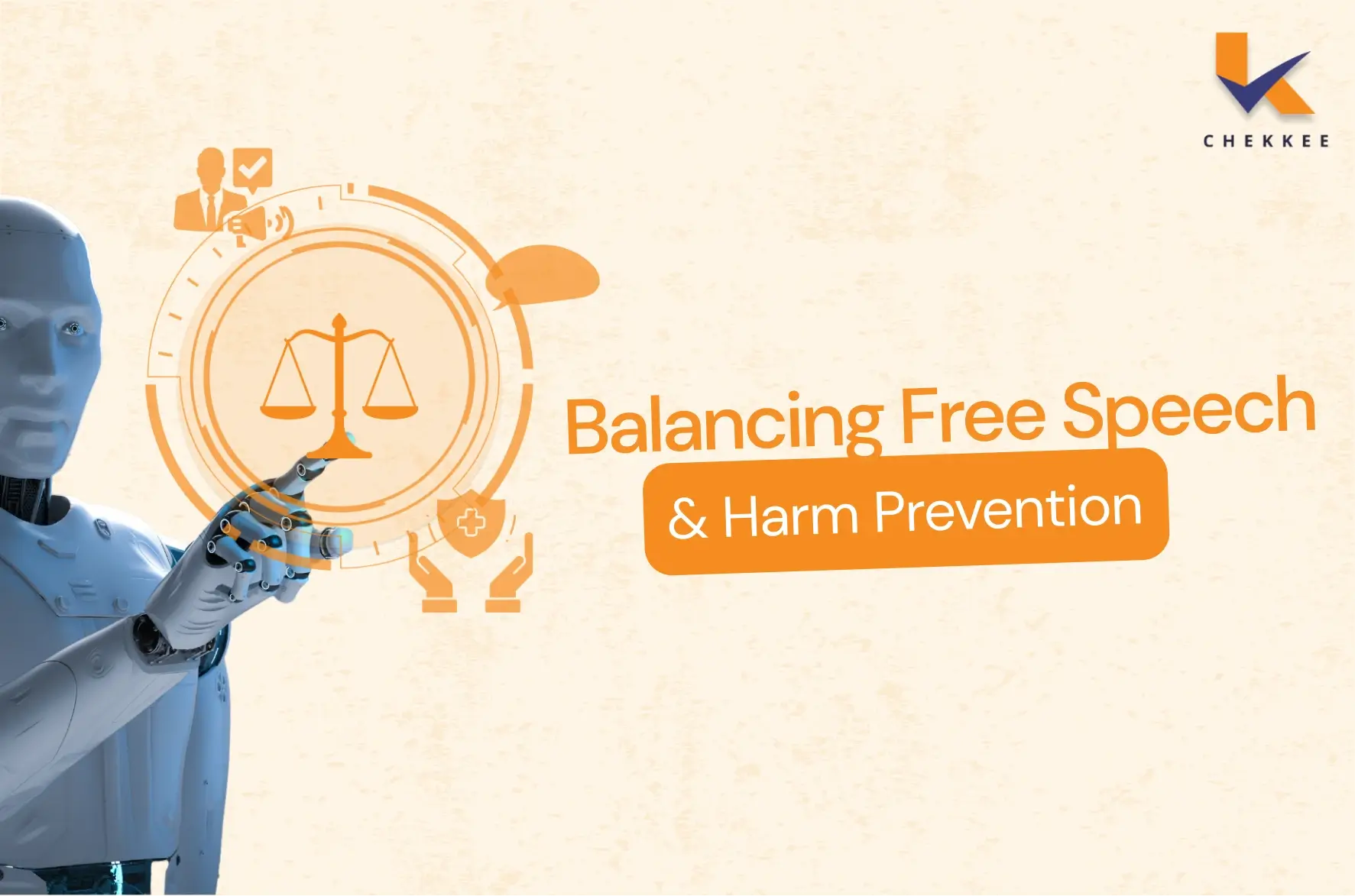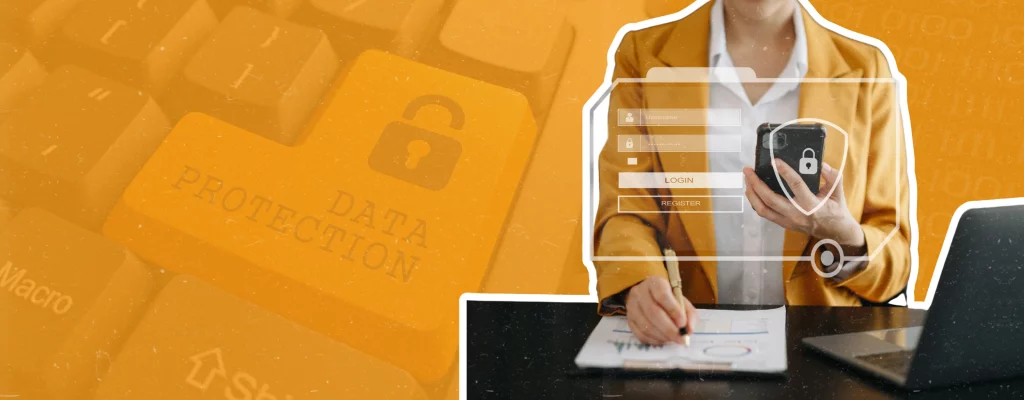The Ethics of Content Moderation: Balancing Free Speech and Harm Prevention

UPDATED February 19, 2024
Written By Laniel Arive
The age of passive communication, where Internet users are solely media consumers, has long been dead.
The advent of digital media has made it possible to upgrade the interactivity of online platforms, enabling users to consume and produce content. However, as the saying goes, “With great power comes great responsibility.” Thus, content moderation has become more important than ever.
But first, what is content moderation?
Content moderation refers to screening and monitoring user-generated content (UGC) to guarantee that it upholds the standards of an online community. It is a means to ensure a quality user experience by removing illegal and offensive content.
Traditionally, content moderation is done manually. This refers to manual moderation, where a human manually moderates the UGC, deciding whether the content fits the platform.
However, digital technology has since reshaped the online public sphere. Due to the unparalleled content volume, manual content moderation services have become daunting. Hence, the crucial role of automated content moderation in the online environment.
Automated content moderation, as the name implies, automatically detects inappropriate content. This often employs artificial intelligence (AI) to provide content moderation solutions to digital problems.
The Importance of Content Moderation

Given the close competition among online platforms, websites must face the challenge of staying afloat by attracting and engaging with users. However, boosting reach and engagement does not end with promoting interactivity. The fate of online brands also relies on the overall user experience.
Content moderator services are a key factor in ensuring a quality experience for users. It mitigates the risks of unmoderated UGC in three ways:
- It reduces the proliferation of harmful content.
Blocking or eliminating toxic content contributes to combatting the adverse effects it spills on the real world.
- It creates a safe and inclusive digital space.
Content moderation detects harmful content before it surfaces on the user interface, creating a safe and inclusive digital space for users.
- It reflects the values and ethos of your brand.
When toxic content is reduced and people are cared for, it enhances your brand's image. Not only does it signify the values and character of the brand, but it also makes you one step ahead of your competitors.
Where The Dilemma Starts
While AI content moderation addressed the gap between the limitations of human moderation and the exponential growth of data, AI has always been a subject of moral debate.
Since AI simplified and accelerated the processes of human life, it raised concerns about accountability, creativity, ownership, and social responsibility. In general, its potential to replace and surpass human capabilities underscored the moral challenges that need to be addressed in the present.
In content moderation, the ethical dilemma arises from the meticulous task of balancing protecting freedom of speech and mitigating potential threats to the public sphere.
The Challenge of Balancing Free Speech

Freedom of speech, especially in democratic societies, is always a top priority. Besides this, the digital age has brought about unprecedented freedom of expression where individuals can freely voice their opinions and beliefs. Unfortunately, this freedom also birthed content moderation problems and complexities.
Here are the overarching adversities encountered in the content moderation experience of online platforms concerning free speech:
- What decision to make?
While some topics, such as illegal drug use, are relatively easier to classify whether they are right or wrong, other contents are just inherently ambiguous. This mostly applies to humorous contents which vastly vary across cultures.
For instance, a joke is harmless to one culture but is insensitive to another. These types of content are more complex to moderate because the moderation approach needs to be localized to understand their context.
Besides this, UGC is also in question because they tend to campaign for hate speech. Due to anonymity in digital media, users are tempted, or sometimes unknowingly directed, to engage in online hate speech or discrimination. This highlights the challenge in content moderation to uphold freedom of speech without undermining public safety.
- How do you know it’s fake?
Another difficulty that content moderation needs to address is the proliferation of misinformation. But because misinformation takes on different forms, the challenge really is how to detect when the content is fake?
Although fabricated and imposter contents are distorted, other forms, such as misleading, satirical, and propaganda content, just fall under the gray areas. They can escape the warning signals of content moderation because they appear somewhat true. Therefore, online platforms need to fortify the capabilities of their content moderation service to avoid the proliferation of inaccurate information.
- What actions to take?
While it is ideal that the information circulating online is safe and factual, mitigating harm from misinformation remains challenging, especially for online platforms whose lifelines rely on their users.
For instance, removing potentially harmful content, deplatforming sites, or penalizing accounts whose content threatens online security may violate freedom of expression. Therefore, online platforms, whether dating sites, e-businesses, web communities, virtual marketplaces, or online games, must carefully examine the content to balance social responsibility and freedom of expression.
Harm Prevention and User Safety

The dynamic development of digital spaces necessitated content moderation to uphold freedom of expression, but not at the expense of user safety. In short, most of the burden is on the shoulders of online platforms to prevent harm and prioritize user safety.
But how can you do that?
Here are the red flags you need to watch out for when monitoring UGC:
- Misinformation
This refers to the proliferation of fabricated, manipulated, and misleading information that aims to deceive users. From political stances to economic issues, the fight to eradicate misinformation is fundamental even in a digitalized society.
- Cyberbullying
This is the sending or posting of content that intentionally harms or threatens users. These include online threats as well as mean, negative, rude, and aggressive texts, messages, images, videos, and others.
- Hate Speech
Online hate speech is an offensive and discriminatory discourse that targets a person or a group of people regarding gender, race, color, and age, among others. Often comes in varying degrees, hate speech can be a direct or an indirect attack or insult to users.
The Risks of Unmoderated UGC
Harm prevention and user safety are only two of the tons of things that online platforms need to take care of. That said, content moderation outsourcing or hiring third-party moderators is a smart solution to avoid the following consequences:
- Exposure to Offensive Content
The vast freedom of speech and expression enabled people to amplify their voices and disseminate information of various kinds and forms. While this is not necessarily a bad thing, unmoderated UGC makes your site vulnerable to offensive content.
Although it is acknowledged that UGC provides the lifeline of online brands, it can also take down the company when left unwatched.
- Harmful Effects to Users
Unmonitored content proliferates hate speech, discriminatory remarks, explicit content, and violence, among others. These harm the users to varying degrees. For instance, besides excluding them from digital discourse, hate speech and discrimination may take a toll on the users’ mental health.
- Damage to Quality and Overall Branding
When users feel unsafe, it reflects poorly on the brand. In a fast-paced online marketplace where competitors are just one click away, creating a safe and quality service and user experience is a must.
Transparency in Content Moderation Policies

Upholding free speech and ensuring user safety are equally important in any digital space. Thus, the online platforms' main goal is to find the perfect balance between them to alleviate the moral dilemmas of content moderation.
Transparency is the key ingredient to combat the ethical complexities of content moderation processes.
Clear, concise, and accessible content moderation policies save users and online platforms time and resources. It informs the users on what and what not to post and reduces the harmful content that needs to be moderated.
More so, community guidelines inform users of the company’s standards. Not only are transparency and accountability ethically imperative, but they are also substantial in regulating online platforms, contributing to a healthier, safer, and more inclusive digital environment.
Implementation of Technology in Moderation

The extent of the pervasiveness of technology in the world today is no longer a surprise. AI brought about the biggest major technological advancement, which generally upgrades the speed and efficiency of content moderation.
This system accommodated the copious volume of user-generated data in digital platforms, which was way beyond the capacity of human moderation.
However, just like anything else, the development and deployment of technologies, including AI, are not without limitations.
Here are the limitations of AI that raise ethical and methodological questions in the conduct of automated content moderation:
- False Positives and False Negatives
The heart of AI content moderation problems centers on its incapability to understand context. Because its function is reliant on how it was programmed, AI content moderators read content in black and white. Thus, it cannot detect deeper nuances.
This limitation underscores the tendency of AI content moderation to generate false positives where harmless content is removed or false negatives where harmful content is not detected.
- Algorithmic Biases
Besides technological limitations, digital and social media are also algorithmically moderated. Thus, they possess algorithmic biases regardless of the impartiality of their design.
Because technology such as AI is dependent on the data they are trained on, its results can be inaccurate when exposed to biased and disproportionate datasets.
Due to these limitations, solely relying on automated content moderation is inadvisable. At the end of the day, human or manual moderation remains a necessity to ensure more accurate moderation results.
User Appeals and Reporting Mechanisms

As mentioned, gone are the days when Internet users were passive communicators. Thus, online platforms should allow users to participate in the content moderation process through appeals and reporting mechanisms.
Given the limitations of automated and manual content moderation, decisions on complex content are never absolutely accurate. Thus, appeals and report options are essential because these allow users to flag and correct potential incorrect decisions.
The appeal and report process may vary from one site to another, but in general, it must embody the principle of willingness to be corrected. After all, these mechanisms are important in making our digital world an inclusive and safe environment.
International Perspectives on Content Moderation

The cultural differences among individuals and communities have fueled diversity in digital platforms. Unfortunately, this also made it more difficult for content moderation approaches to transcend cultural borders.
Simply put, content moderation has no one-size-fits-all approach because of the stark contrast between context and communication across cultures. These different cultural nuances manifest through the differences of users in terms of habits, humor, type of communication, and even tone.
By formulating a content moderation strategy fluent in different languages, an online platform can easily break the barriers and navigate the cultural waters fluidly.
Surviving the Digital Minefield with Content Moderation
The ethical dilemma of content moderation stretches from balancing free speech to prioritizing user safety while maintaining a safe and inclusive digital space for everyone. This stems from the insufficient manpower to moderate the extensive UGC and the complexities of relying solely on AI content moderation services.
However, the solution is not to choose one between the two. One must find the perfect recipe for efficient and well-balanced content moderation service to keep online platforms thriving.
But how can we do that?
Finding a perfect partner resolves almost everything. Chekkee is a content moderation company that fully optimizes the good of both manual and AI content moderation services. Not only does it handle all types of UGC, but it also traverses cultural boundaries due to its availability in multiple languages.
Living in the digital world is already complex as it is. Let us take this one off of your list.
Contact us for more details!